How to get rid of ants: repel these insects from your home and garden with these tips
Need to know how to get rid of ants? Follow our advice and deter these tiny bugs from your backyard
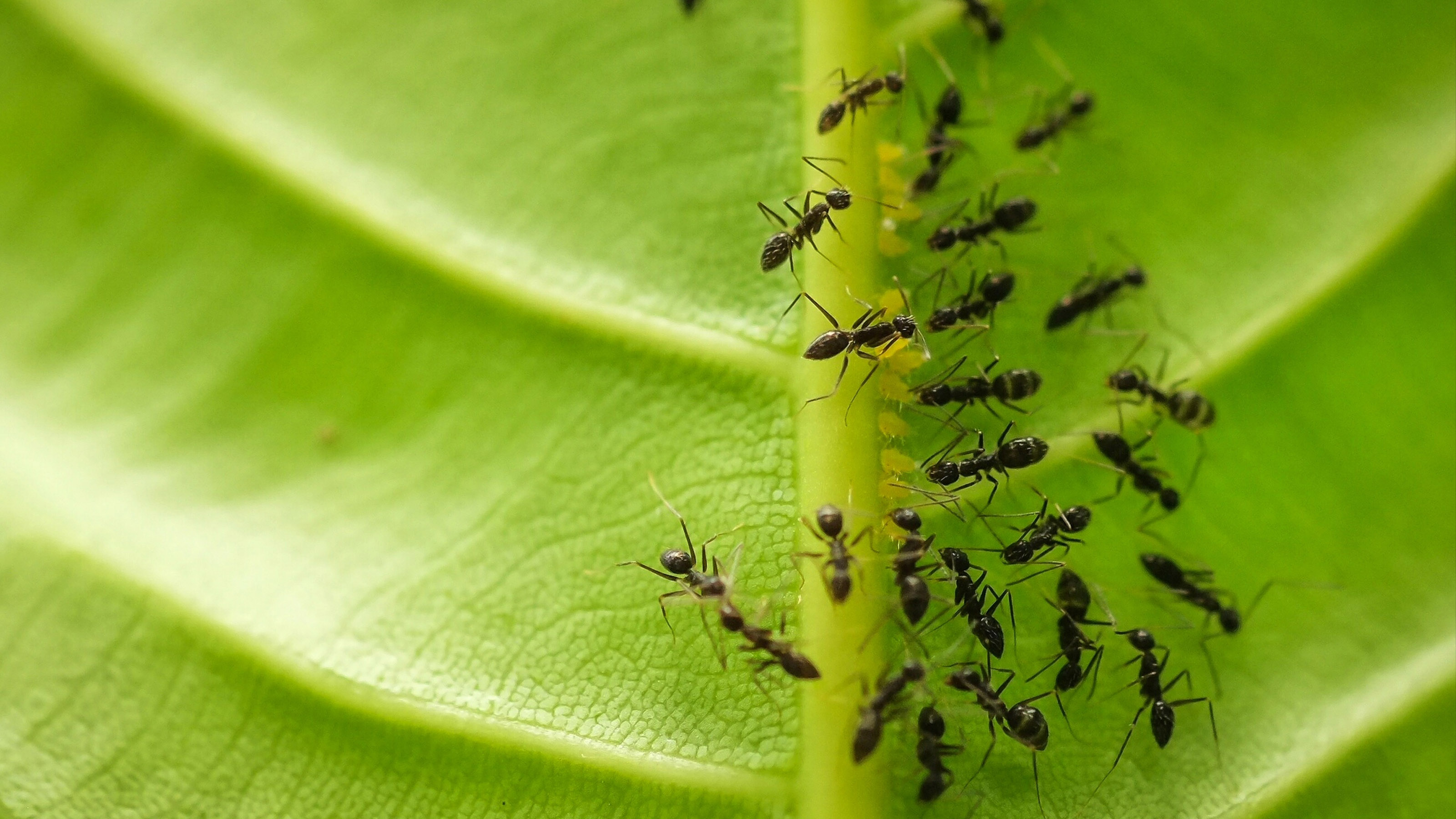

Need to know how to get rid of ants? You've come to the right place. Sure, they may be tiny, but if there's one, there's probably a good hundred more. And although they're generally not harmful, most kinds are simply annoying, especially if you have tons roaming around when you're trying to relax outdoors. If they get into your home, they can also be a pain because of how many there tends to be at a time.
If you have carpenter ants, however, you might have a bigger problem on your hands. This is because they make tunnels and nests inside wood. If you've already seen our guide on how to get rid of carpenter bees, this behavior will sound familiar. No one wants creepy crawlies chomping away at their structures – it can lead to a lot of expensive damage.
The thing is, with ants, you'll never really get rid of them unless you eradicate the queen ant. This queen ant is responsible for laying eggs, and lives way down in the ant colonies mostly underground (or, in carpenter ants' case, in wood that's nearby moisture). The 'worker' ants are the ones you'll spot marching across your glass of lemonade or lunch, as they are responsible for going out to collect food, and protecting their home. So if you're facing a big ant problem, you'll want to wipe out the source – the ant colony and the queen.
If, however, you just want to prevent trails of outdoor ants from crawling across your patio or porch, then you may want to take less drastic actions to deter them. Ants are, after all, an important part of the ecosystem – so if they're doing no real harm, then it might feel unnecessary to wipe them out.
Either way, we've got the tips and tricks you need on how to get rid of ants below – from taking out the colony, to simply encouraging them to go elsewhere.
How to get rid of ants: 8 top tips
1. Try essential oils

Essential oils will help to deter ants
There are lots of essential oils that ants don't like, so they are a good choice if you want to know how to get rid of ants naturally. Peppermint and tea tree oils can both be diluted with water to make a spray – simply spritz around window frames and base boards, suggests Healthline. For peppermint, they suggest to mix 10-20 drops with two cups of water, for tea tree (which can kill ants as well as simply repel them), go for 5-10 drops with two cups of water.
Lemon eucalyptus oil, cinnamon leaf essential oil (which can also kill ants) and neem oil are also known to be effective. Try saturating balls of cotton wool and dotting them around areas where you have spotted ants.
Be wary if you have pets though, as essential oils can be harmful to them. And on that note, don't forget to check out our most poisonous plants for dogs and plants that are poisonous to cats guides to keep your four-legged friends safe.
2. Wipe out their trails with diluted vinegar

Wipe away ants' trails and you'll throw them off their usual paths
Ever noticed how ants travel in trails? This is due to the line of pheromones that they leave, which enables the other worker ants to follow to get to and from food sources from their colony.
If you wipe out their scented tracks, then there's nothing for them to follow, so you'll deter them from their usual paths across your garden or patio ideas, or into your kitchen. One way to do this is by wiping or spritzing hard surfaces with vinegar diluted with water.
Vinegar naturally deters ants. Plus, they'll still be able to smell it long after you can (it usually fades once dry for humans). So, you won't need to worry about having to keep your home smelling like a chip shop in a bid to repel these pesky insects.
Want to know how to get rid of weeds and stop them from spreading, too? Using vinegar is a budget-friendly trick (just don't get it on the plants that you actually want in your borders).
3. ...or try using hand soap instead
Don't fancy using vinegar? Then some say that soapy water is just as good to wipe out those chemical trails that ants use to work together.
Simply soak a sponge or fill a spray bottle and clean down your decking ideas, door step, window frames, or anywhere else that you've spotted being used as a regular ant highway.
4. Seal your food
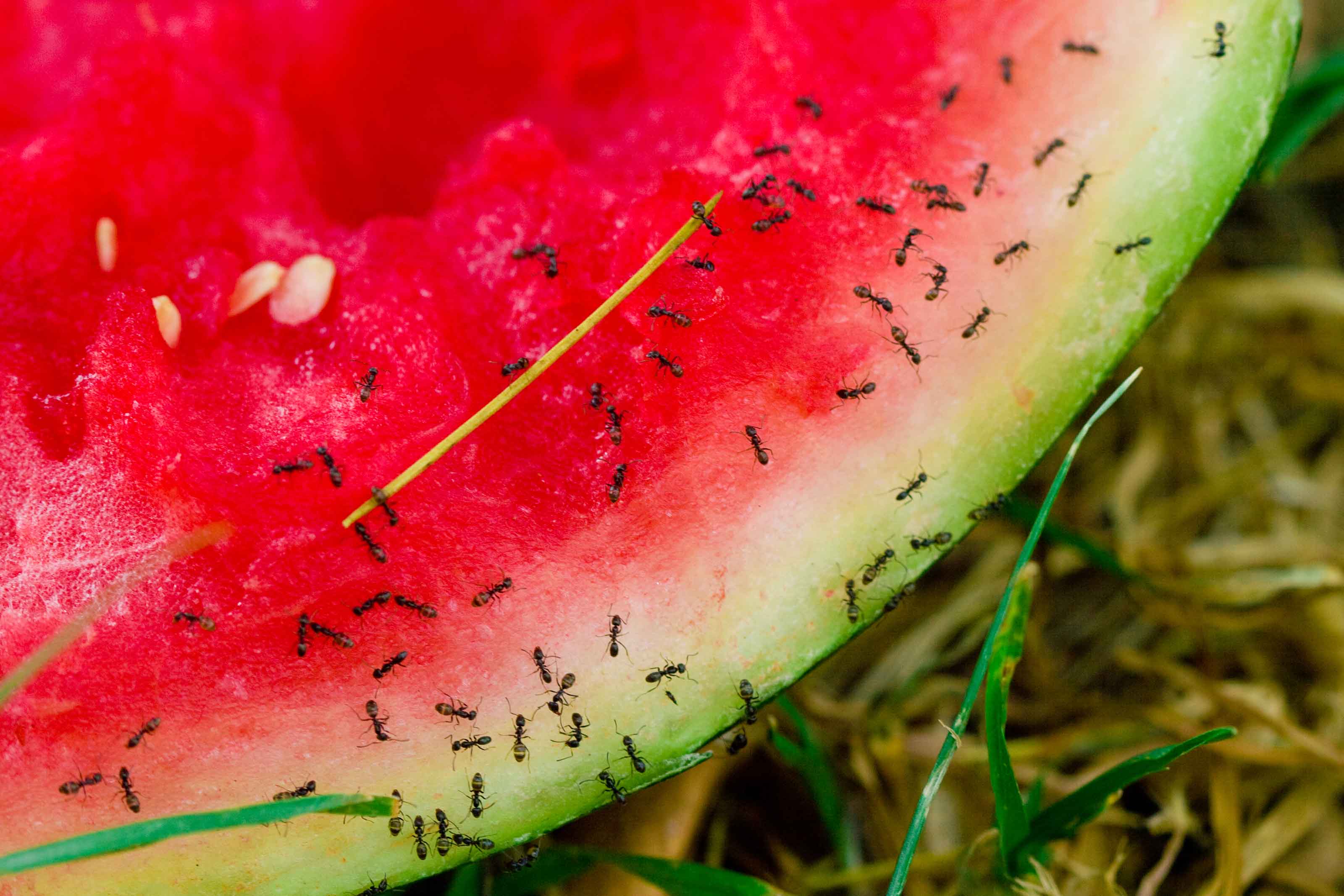
Don't leave food and drink lying around – for ants it's a banquet
It pretty much goes without saying that one of the best ways to deal with ants is to avoid getting them in the first place. And seeing as ants are on the mission for food, this means making sure that there's none lying around to attract them.
Keep indoor and outdoor kitchen ideas wiped down after cooking, avoid leaving unsealed food in cupboards or out on the side, and don't leave empty wine glasses or snack bowls out after a night of dining beneath the stars.
Pet food can also attract ants, so avoid leaving dog or cat bowls out after your pets have finished eating.
5. Deter them with coffee grounds
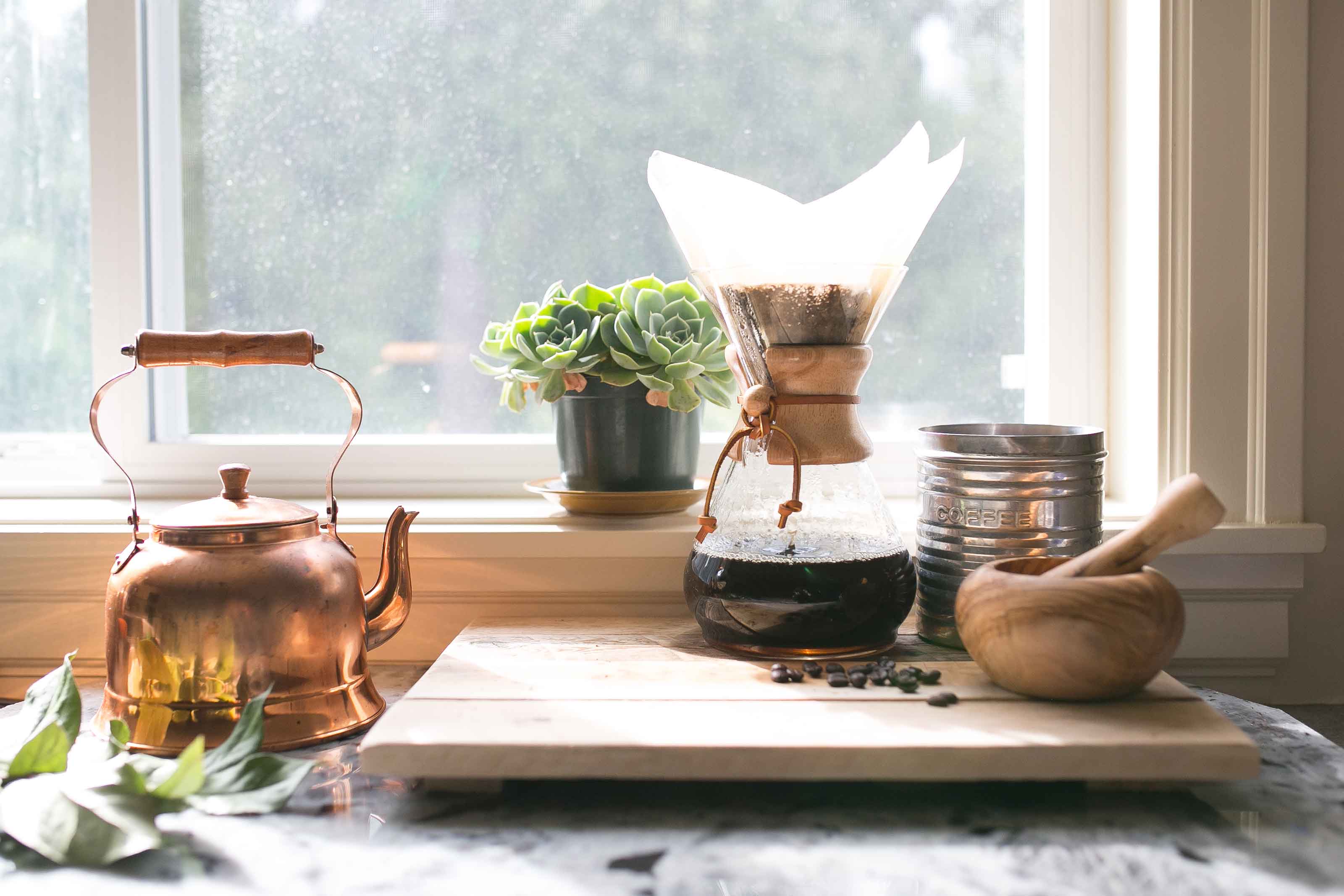
Coffee is a natural ant repeller
Leftover coffee grounds once you've made your brew are a natural repellent for ants. Try sprinkling them on disposable surfaces, suggests Healthline (think sticky notes or flash cards), and leaving them in areas that you've spotted ants, or on windowsills.
6. ...or pepper
As an alternative to coffee, you could try pepper to ward off those pesky ants. Either black or cayenne will do the job.
Just dust it along baseboards and behind appliances, as suggests Healthline, to send them packing. Pepper and chilli is also useful if you want to know how to get rid of squirrels in the garden, too.
7. Pour boiling water over the nest

Need to know how to get rid of ants? Try pouring boiling water over the nest to wipe them out
It might seem a little aggressive, but if ants are driving you up the wall, then you can try pouring boiling water over their nest. Healthline says to pour it directly into the holes, which will kill many of the ants inside.
However, some ant colonies are very deep, so this technique is unlikely to kill off the whole colony in one go. Be persistent, but if it continues to be a problem, you might need to try using the bait method (see below), or hire a professional.
8. Use ant bait
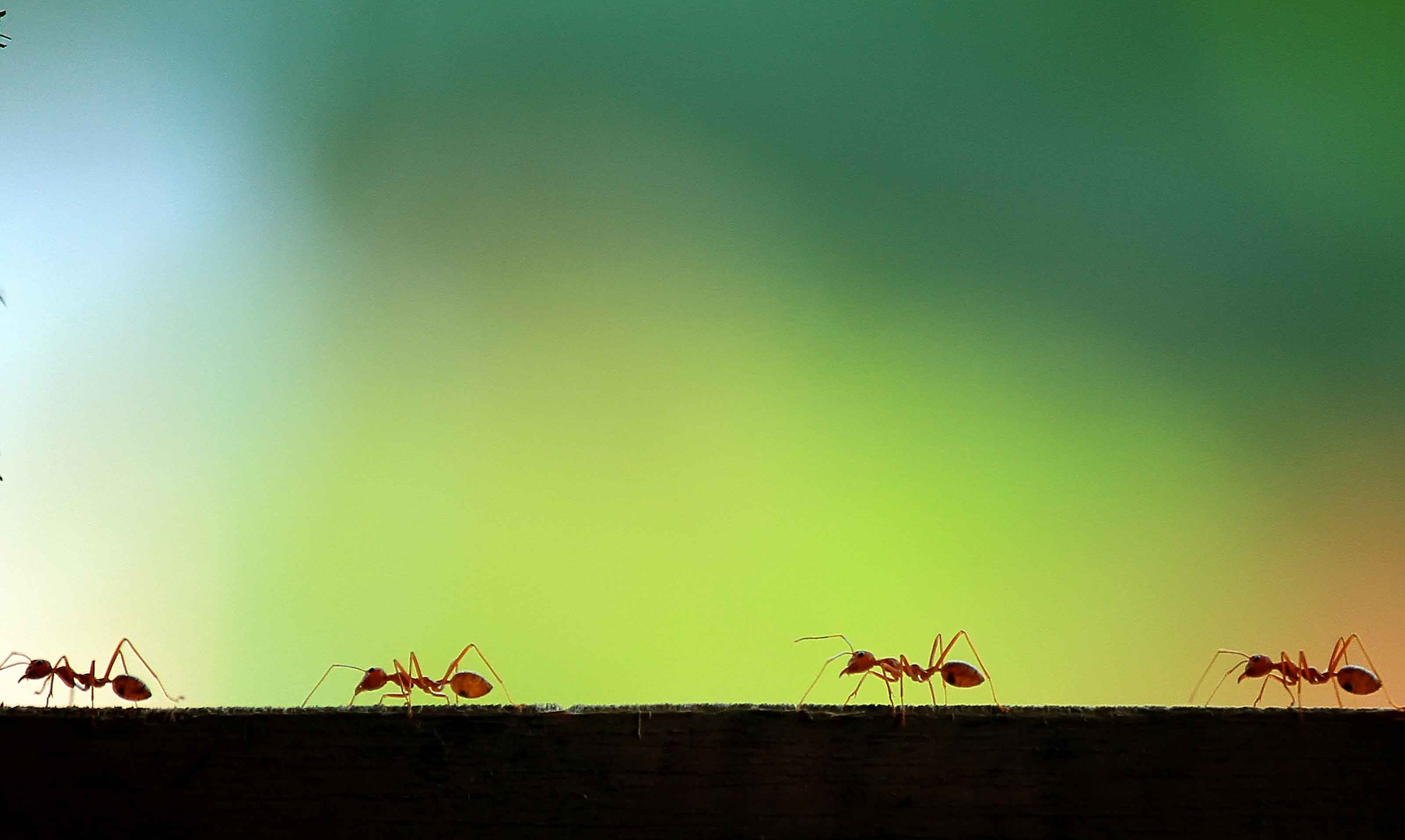
Ants will take the bait back to the colony
If you're serious about taking on an actual ant nest, then you'll want to go down the route of ant baits. These can be bought commercially.
Basically, ant bait is poison disguised as food, so foraging ants will take it back to the colony. The poison will then destroy the queen ants and the rest of the nest. It generally takes a few days for this to happen and if you're still seeing ants, you'll need to replenish the bait stations. Remember to avoid cleaning up the trails (see above) if you're using this method – you need the ants to get home for this to work.
Be sure to carefully read the instructions and take all necessary precautions when dealing with pesticides, and avoid using around children or pets.
Do ants bite?
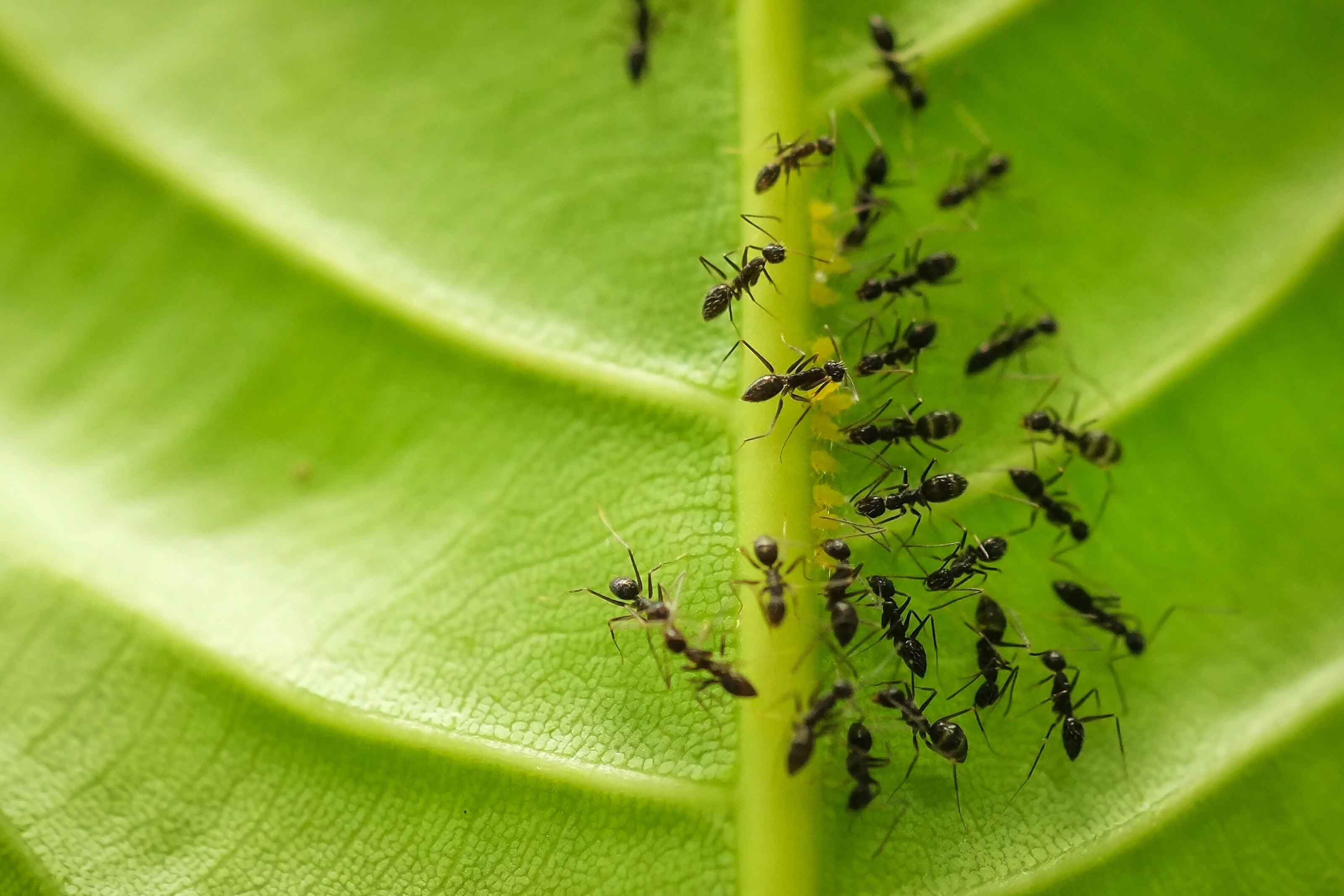
Ants won't bite unless threatened, and for most species, it won't be hard enough to seriously hurt you
Technically yes, ants can bite, however most species are not out to attack humans unless they feel threatened. Plus, they're so small that even if they did bite, you might not even feel it.
Fire ants are one of the exceptions, which are mostly found in the southern states of the US. Their bites and stings often lead to painful, itchy bumps. Some people can have allergic reactions to these. The carpenter ant's bite can also be painful, due to its larger size and the formic acid that it'll leave on your skin. Red ants can also bite, but it's generally less painful.
Are ants important to the environment?
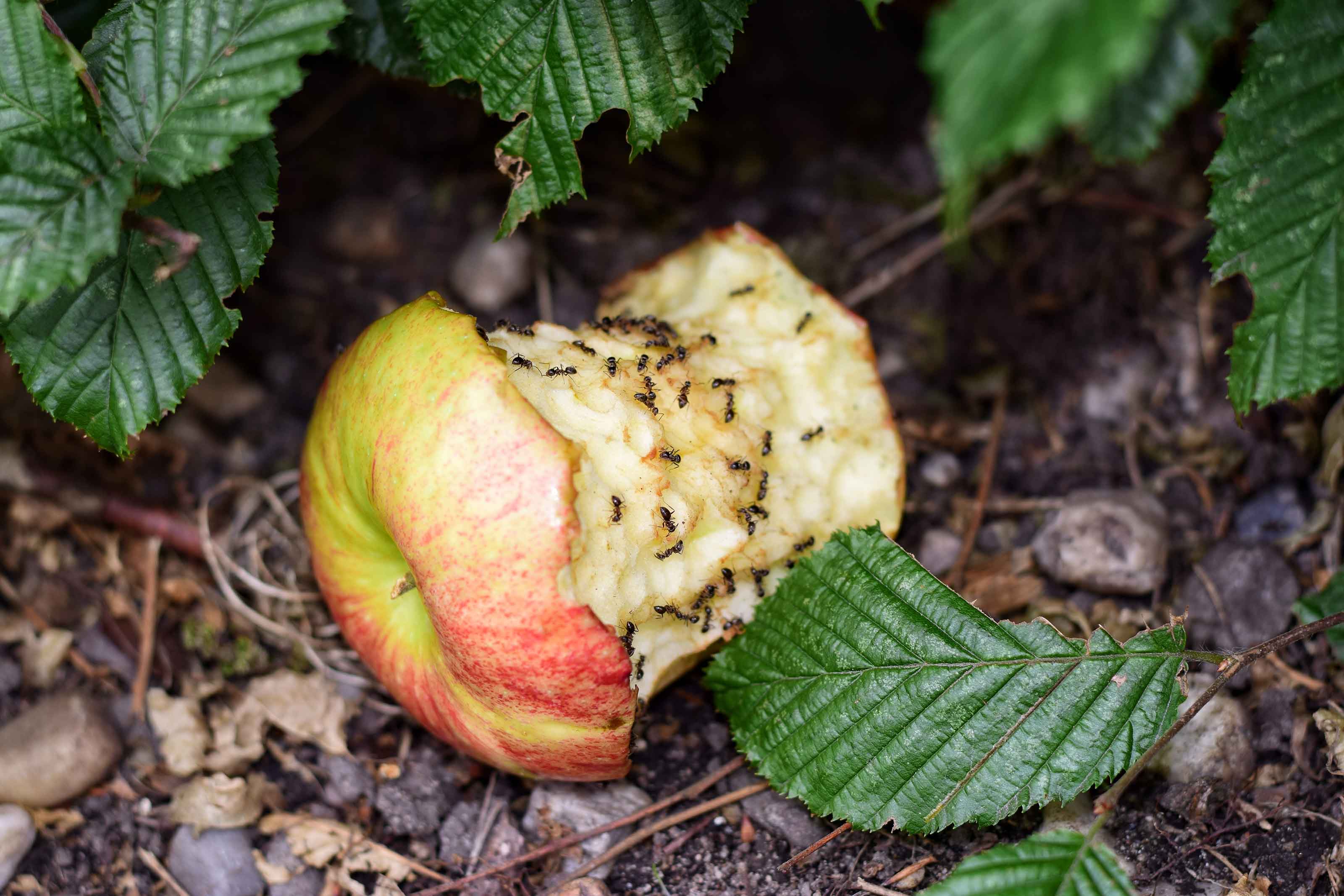
Want to know how to get rid of ants? Before you get started, consider the benefits of these insects, such as their habit of cleaning up the environment
Sure, ants can be a pain, but unless they're becoming a real problem, it's best to deter them rather than actually kill them. This is because they are beneficial for lots of different reasons.
Firstly, as they build their homes underground they aerate the soil, which is good news for drainage and for nutrient up-take of plants. Ants are also one of nature's cleaners – they will feed on dead animals, discarded food, and rotting vegetation – so are useful for clearing up the environment.
What's more, if you've been looking into companion planting to deal with aphids, you might like to know that ants can also be helpful to keep them at bay, seeing as they prey on them. Finally, ants are an important part of the food chain and are eaten by birds and other insects. So, if you're wondering how to attract birds into your garden, then think twice before wiping out your resident ants.

The garden was always a big part of Holly's life growing up, as was the surrounding New Forest where she lived. Her appreciation for the great outdoors has only grown since then. She's been an allotment keeper, a professional gardener, and a botanical illustrator – plants are her passion.
